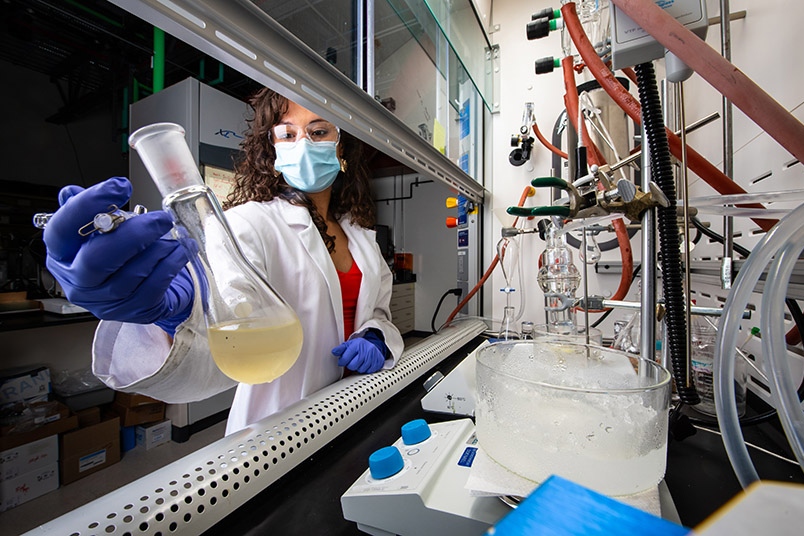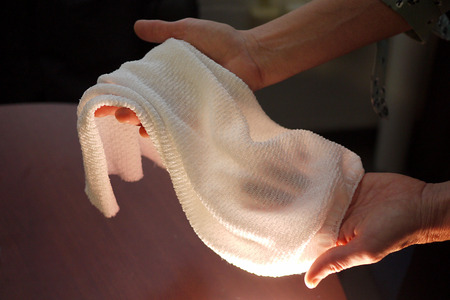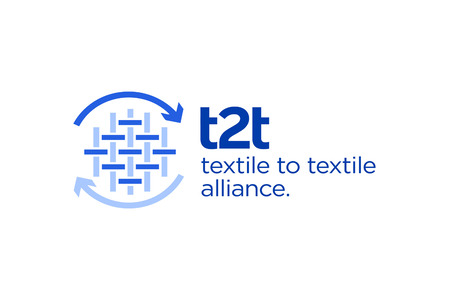
Research shows enzyme-based plastics recycling is more energy-efficient, better for the environment
YarnsandFibers News Bureau 2021-07-21 10:59:04 – USAIn a new study, researchers have discovered that using enzymes is a more sustainable approach for recycling polyethylene terephthalate (PET), a common plastic used in single-use beverage bottles, clothing, and food packaging, is becoming increasingly relevant in addressing the environmental challenge of plastic pollution.
The study "Techno-economic, life-cycle, and socioeconomic impact analysis of enzymatic recycling of poly (ethylene terephthalate)," was conducted by researchers from BOTTLE Consortium, including from the U.S. Department of Energy's (DOE's) National Renewable Energy Laboratory (NREL) and the University of Portsmouth, and was published in the journal Joule.
The study found that enzyme-recycled PET has the potential to outperform traditional, fossil-based PET manufacturing processes in terms of energy, carbon, and socioeconomic consequences. If further developed and implemented at scale, the concept might open up new prospects for PET recycling as well as a method for recycling textiles and other PET-based products that are now not recycled.
PET is one of the most widely used synthetic polymers in the world, with 82 million metric tonnes manufactured each year; around 54% of PET is utilized in the production of textiles and carpet fibers.
Avantika Singh, a chemical engineer at NREL and the first author of a new paper outlining the path toward enzyme-based recycling, said that from all the plastics manufactured since the 1950s, less than 10% have ever been recycled. Most waste plastics end up in landfills.
The co-authors of the study include Nicholas Rorrer, Scott Nicholson, Erika Erickson, Jason DesVeaux, Andre Avelino, Patrick Lamers, Arpit Bhatt, Yi Min Zhang, Greg Avery, Ling Tao, Alberta Carpenter, and Gregg Beckham(all of NREL); John McGeehan and Andrew Pickford, (University of Portsmouth's Centre for Enzyme Innovation in the United Kingdom) who are also members of BOTTLE.
BOTTLE is working to solve the problem of plastic pollution in two ways i.e. developing energy-efficient, cost-effective, and scalable recycling and upcycling technology, and designing contemporary plastics to be recyclable by design.
The challenge of plastic recyclability is addressed in a new research paper. While pictures of abandoned bottles floating in seas and other bodies of water serve as a visible reminder of the issues caused by plastic waste, the less-publicized question of what to do with PET used to make fabrics for clothes and carpet fibers persists.
The researchers created a model of a conceptual recycling plant that might handle a portion of the 3 million metric tonnes of PET used in the United States each year. PET is broken down into two components during the enzymatic recycling process: terephthalic acid (TPA) and ethylene glycol.
The study team discovered that the enzymatic recycling method may lower overall supply-chain energy usage by 69-83% and greenhouse gas emissions by 17-43% per kilogram of TPA when compared to traditional fossil-based manufacturing pathways.
Furthermore, a comparison of virgin TPA and recycled TPA across the US economy reveals that the environmental (/topic/environment)al and socioeconomic impacts of the two procedures are not evenly spread across their supply chains. The suggested recycling technique has the potential to decrease environmental (/topic/environment)al effects by up to 95% while also producing up to 45% more socioeconomic advantages, including local jobs at material recovery plants.
The research also forecasts that enzymatic PET recycling would attain cost parity with virgin PET production, underlining the enzyme technology's potential to decarbonize PET production while also allowing the recycling of waste PET-rich feedstocks like clothes and carpets.
Singh said that it's one of the most significant changes. They may be a game-changer if they can capture that space—textiles, carpet fibers, and other PET waste plastics that aren't currently recovered.
Market Intelligence
Ask for free sample Report

experience
Customer Base
dedicated team
Countries Served Worldwide









